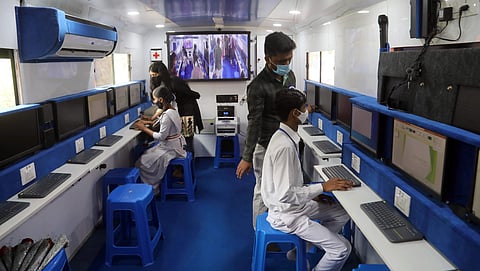

The Indian School of Business (ISB), Hyderabad, has come up with solutions to combat antimicrobial resistance (AMR) in India, with the help of a study conducted by the School's Institute of Healthcare Management and the Center for Global Development. The study finds that critical-priority pathogens have more than 50 per cent resistance to over half the available antibiotics in India.
The ISB research team has proposed two kinds of recommendations to combat AMR. The first is enhancing access to high-end antimicrobials. And the second calls for the creation of an innovation ecosystem for antimicrobial research and development, as mentioned in a report by The New Indian Express.
While the first recommendation includes modifying procurement practices, adding essential antimicrobials in state drug procurement lists, improving inter-state coordination, enhancing surveillance and improving diagnostics facilities in hospitals, the second involves developing specific antimicrobials for the Indian context.
"The report identifies a host of policy recommendations that key stakeholders within central and state governments can implement through both the National Action Plan on AMR and state actions plans. If implemented correctly, these recommendations put India in a unique position to lead the world in the fight against AMR and vastly improve global health security," said Javier Guzman, Senior Policy Fellow and Director of Global Health Policy at the Center for Global Development.
More than a million people die in India every year due to an attack from a drug-resistant pathogen. Factors compounding AMR include the widespread overuse and misuse of antibiotics, both in hospitals and at homes, the study report explains.
While the National Action Plan on AMR launched by the government in 2017 attempts to address some of the issues, the plan lacks a focus on drug procurement, access, and stewardship practices. Moreover, at the state level, only four states (Kerala, Madhya Pradesh, New Delhi and Andhra Pradesh) have action plans to contain the spread of AMR, as per TNIE.
